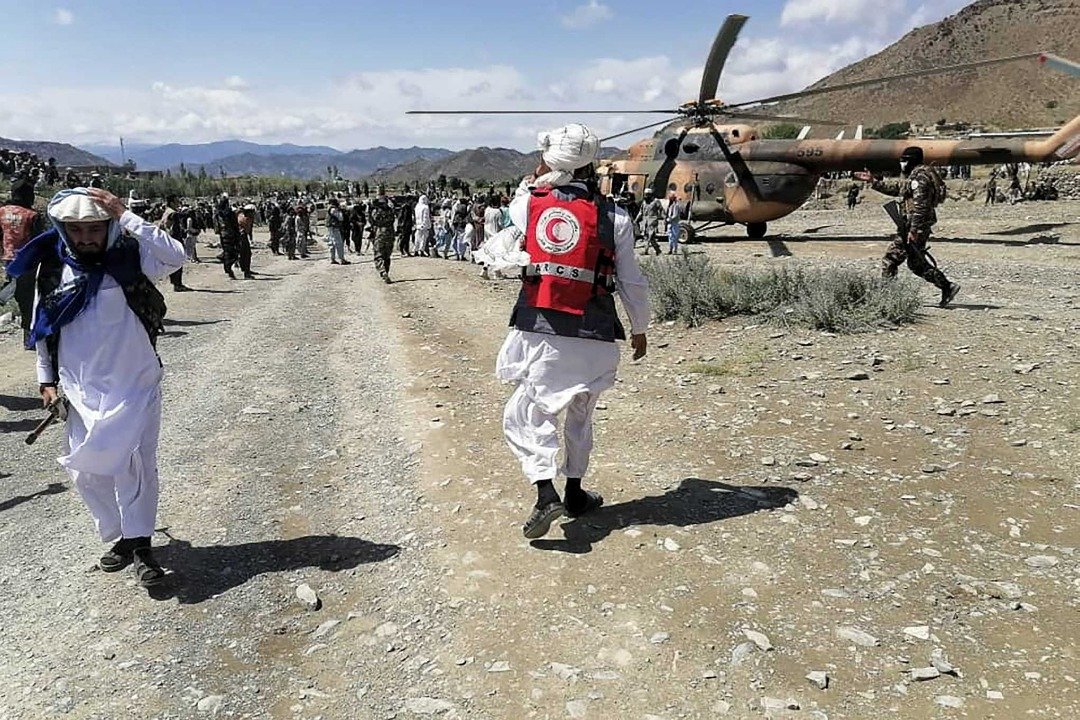
The 5.9 magnitude quake struck hardest in the rugged terrain of the east, where people already lived hardscrabble lives in a country in the grip of a humanitarian disaster made worse by the Taliban takeover in August.
“People are digging grave after grave,” said, the head of the Information and Culture Department in hard-hit Paktika, adding that at least 1,000 people had died in that province alone.
“It is raining also, and all houses are destroyed. People are still trapped under the rubble,” he told journalists.
The death toll climbed steadily all day as news of casualties filtered in from hard-to-reach areas in the mountains, and the country’s supreme leader, Hibatullah Akhundzada, warned it would likely rise further.
Earlier, a tribal leader from Paktika said survivors and rescuers were scrambling to help those affected.
“The local markets are closed and all the people have rushed to the affected areas,” Yaqub Manzor told AFP by telephone.
Photographs and video clips posted on social media showed badly damaged mud houses in remote rural areas.
Some footage showed local residents loading victims into a military helicopter.
Even before the Taliban takeover, Afghanistan’s emergency response teams were stretched to deal with the natural disasters that frequently struck the country.
But with only a handful of airworthy planes and helicopters, an immediate response is often limited.
Afghanistan is frequently hit by earthquakes, especially in the Hindu Kush mountain range, which lies near the junction of the Eurasian and Indian tectonic plates.
Scores of people were killed and injured in January when two quakes struck rural areas in the western province of Badghis, damaging hundreds of buildings.
In 2015, more than 380 people were killed in Pakistan and Afghanistan when a 7.5-magnitude earthquake ripped across the two countries, with the bulk of the deaths in Pakistan.
The latest earthquake comes at a time when Afghanistan is battling a severe humanitarian disaster, worsened by the Taliban takeover of the country.
Aid agencies and the United Nations say Afghanistan needs billions of dollars this year to tackle the crisis.
Aid agencies have particularly stressed the need for greater disaster preparedness in Afghanistan, which remains extremely susceptible to recurring earthquakes, floods, and landslides.
AFP





